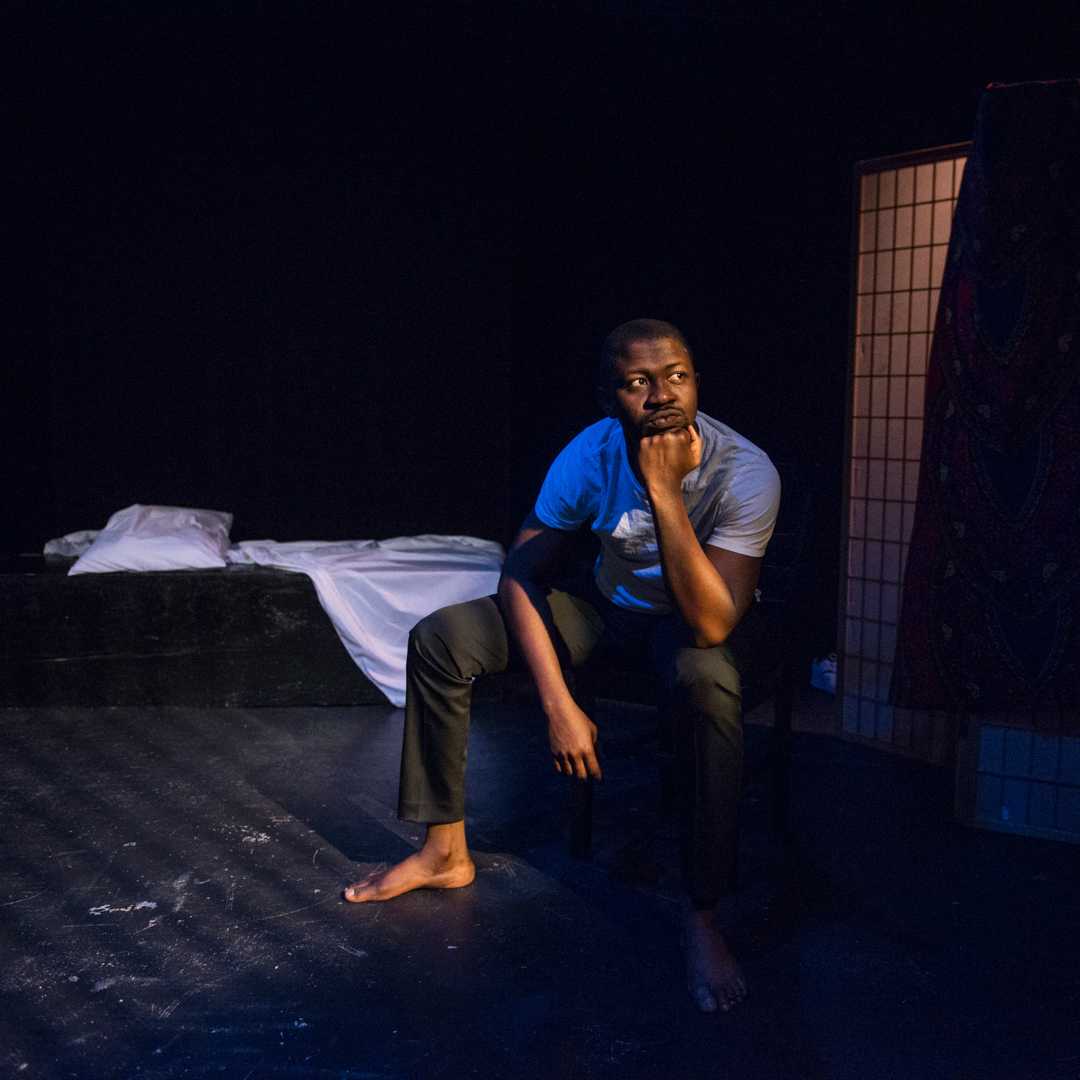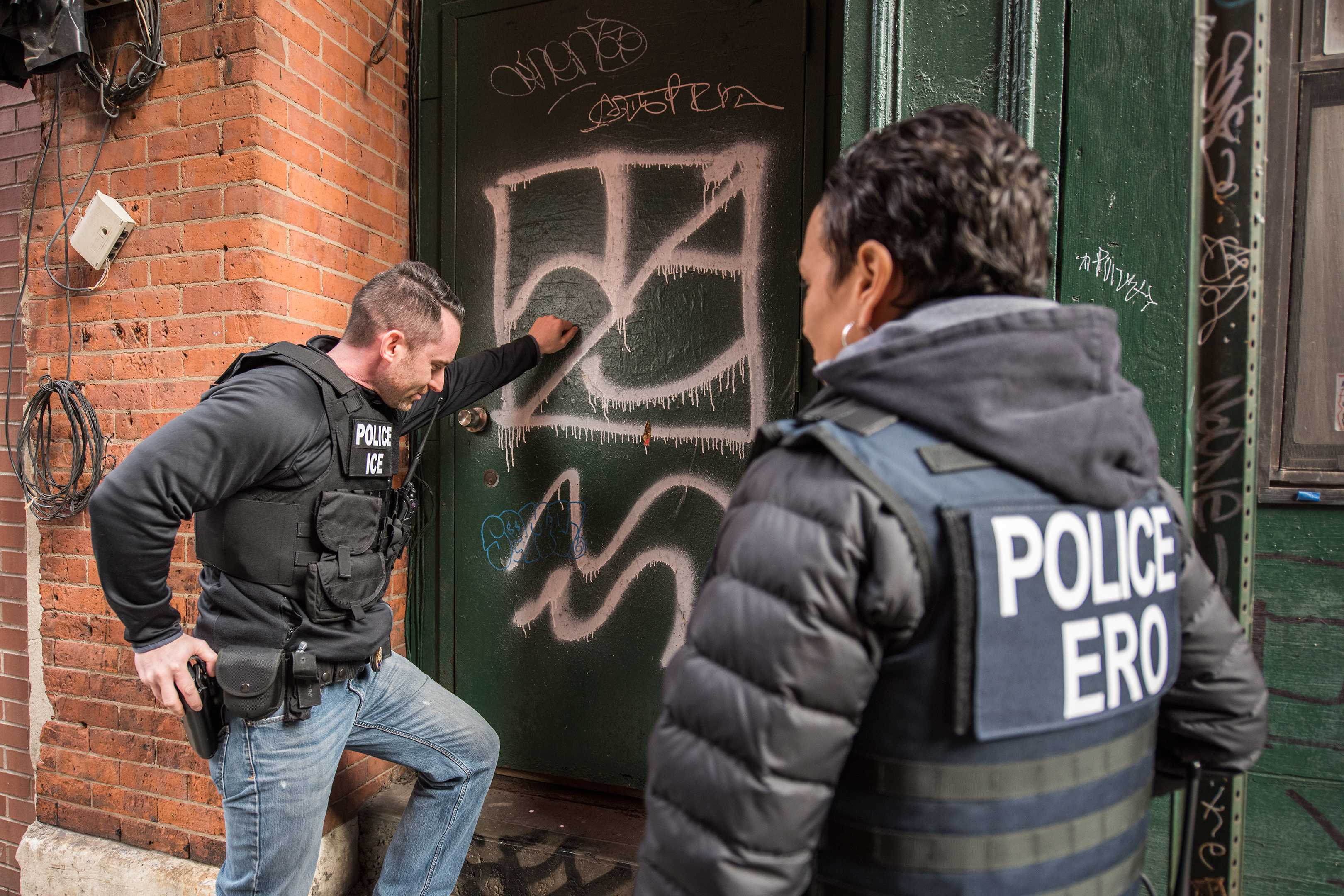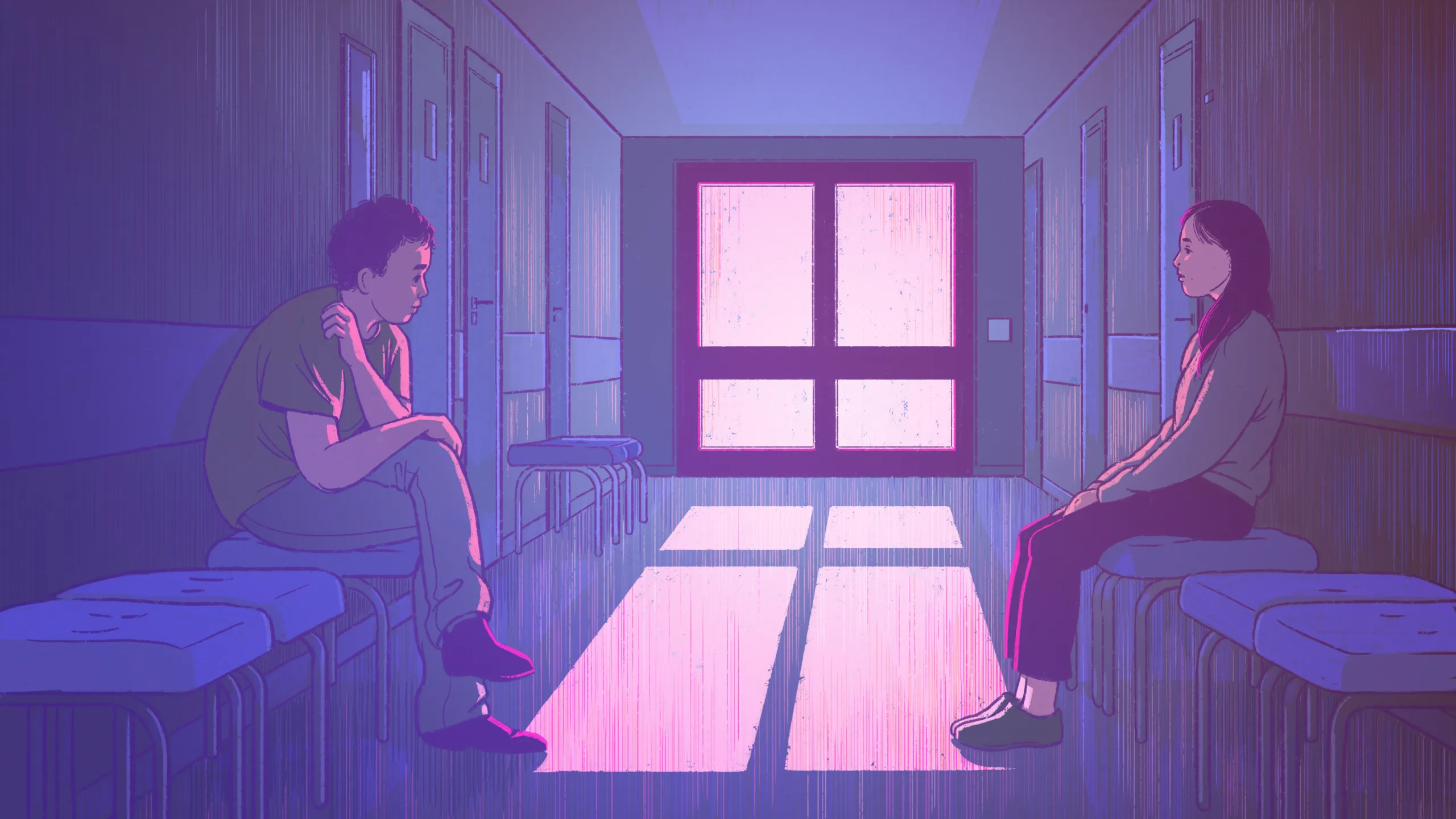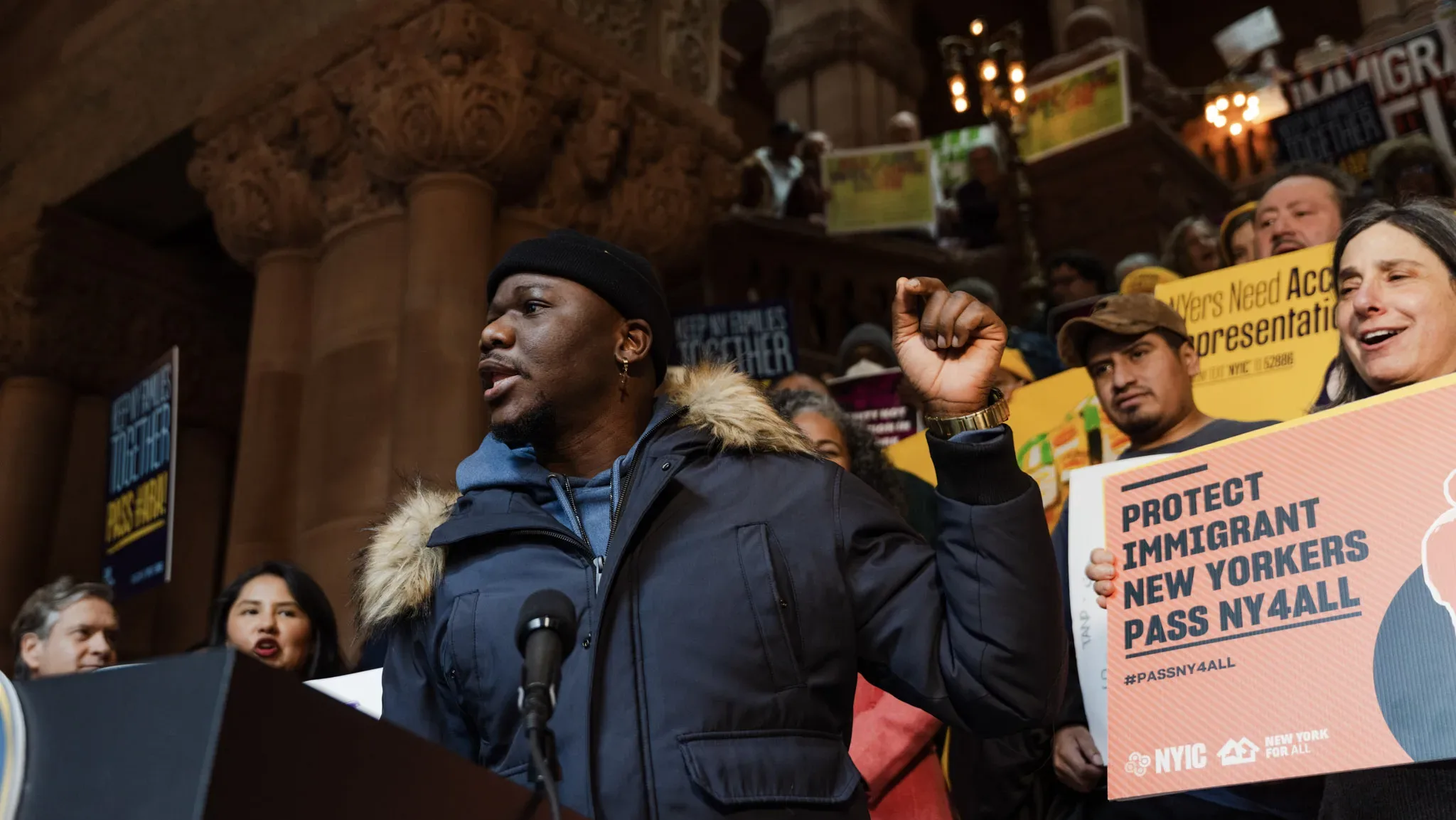In a scene in the play “Bed 26,” Edafe Okporo recalls waking up on the street in Abuja, Nigeria. He had been jumped and beaten the night before on his birthday. As a gay man, it wasn’t the first time he had been attacked.
He recalls his grandmother telling him that he had to have strength. He then realizes that he must leave his home country for a safer place. “There was only one country I wanted to go to.”
“Bed 26” is based on Okporo’s memoir of the same name. It charts his journey from a teenager in Nigeria to an asylum seeker in New York City. The play paints a grim picture of the violence towards LGBTQ people in Nigeria and the harsh realities of immigration detention faced by asylum seekers in the U.S.
The one-man show was part of the Strawberry Theater Festival put on by The Riant Theatre. Okporo, who had never acted before, co-wrote the play with the festival’s organizer Van Dirk Fisher, who is also the founder and artistic director of Riant Theatre.
“I just felt that his story needed to be told,” Fisher told Documented, who approached Okporo about writing the play after seeing him read an excerpt from his memoir in October. “I thought that him doing a performance of his memoir, dramatizing it, can really serve to touch people in a new way and move their souls.”
His true life
The play is based on the true story of Okporo’s life in Nigeria where he faced consistent persecution for being a gay man. It begins at his home in Rijau, Niger State where his grandmother always told him he was special, he said and warned him to be careful. His grandmother is a driving force throughout the play, and recollections of her lessons act as a device to move the play forward.
Okporo moves from his childhood home to university life, to being a young man with his first job in Warri, Delta State. Throughout his life, he faces harrowing abuse. He’s jumped and beaten by strangers when he arrives at the home of a romantic interest he met on an app. His family attempts to force him to marry a woman. He’s jumped by locals who shout homophobic slurs as they kick him on the ground. All these experiences lead to his decision to come to the U.S.
“A lot of people do not know what immigrants go through that makes them come to this country,” Okporo said. “I was ready to pour out my heart to make people understand the pain I suffered.”
The play gives a stinging account of the experience most asylum seekers face when entering the U.S. at an airport. After arriving at JFK in April 2016, Okporo submits to Customs and Border Protection, thinking he will be granted entry into the country. He’s surprised to learn that he will be jailed instantly in a holding cell at the airport.
“What the fuck?” he thought to himself as border patrol took him in.
Months in detention
Shackled and chained, he is made to trot out in front of the passengers who he took the flight with. He is taken to the back of a truck and transported to the Elizabeth Detention Center in New Jersey. The only thing he saw of New York City was the George Washington Bridge through the back of the van.
Arriving in detention, he was assigned Bed 26, the name used to refer to him for the next six months.
The play details the agony of the endless wait in detention that immigrants face as their cases plod through the courts. Okporo’s hearing in immigration court was pushed back eight weeks which meant he was stuck in detention longer. He described losing his sense of self in the face of being labeled a bed number. He was then denied bond in the Elizabeth Immigration Court as he is labeled a flight risk by the judge, sending him back into detention.
But his lawyers, from the nonprofit Immigration Equality, assured him that his case was strong and that he just needed to be patient. The play ends with Okporo winning asylum and being allowed to stay in the U.S.
A first-time actor, Okporo’s performance captivated the small crowd in the packed out Shetler Studios theater, with some guests sitting on the stairs to make room. Okporo’s work as a public speaker was evident in how he carried himself with a lack of formal acting training. Okporo is the director of RDJ Refugee Shelter, a shelter for homeless asylum seekers in New York, and he works on LGBTQ issues in the U.S.
After being approached by Fisher, who saw his memoir reading at an Immigration Equality event at the Jack Fisher Sherman Gallery, Okporo was reluctant to perform it as a play because he had never performed onstage before. Fisher also worried that Okporo would be addressing painful and recent memories.
“Normally, when an actor is working on something, they don’t use anything they haven’t already resolved in their own personal life,” Fisher said. “In this case, I said, ‘This would be the sacrifice that you can make because I think a lot of people will be moved and affected, by your story if they hear it and it can give them hope.’”
Okporo gradually opened up to Fisher and they worked on his acting and how to use his body. Throughout the play, Okporo plays his father, his mother, police officers, college friends and a number of other characters. He struggled at first, but Fisher said he had a breakthrough towards the end of the December.
A new actor
“I’ve never acted before,” said Okporo. “I didn’t learn. I just did. It’s my story. I just had to be sincere to myself and tell my story.”
In constructing the script, Fisher asked Okporo to start writing his story afresh. Okporo started teasing out more details about his grandmother and reflecting on the conversations they had had. Okporo and Fisher originally connected over their relationship to their grandmothers, as Fisher had lost his to cancer in 2008.
“When we were doing the rehearsals, I would break down, I wouldn’t want to continue, Van would push me,” said Okporo. He would take a tissue, wipe his tears and continue, he recalled.
After the play ended, Okporo and Fisher made a tearful exit to the stage and made an emotional speech as he recalled Okporo’s grandmother had not lived to see him granted asylum in the U.S.














